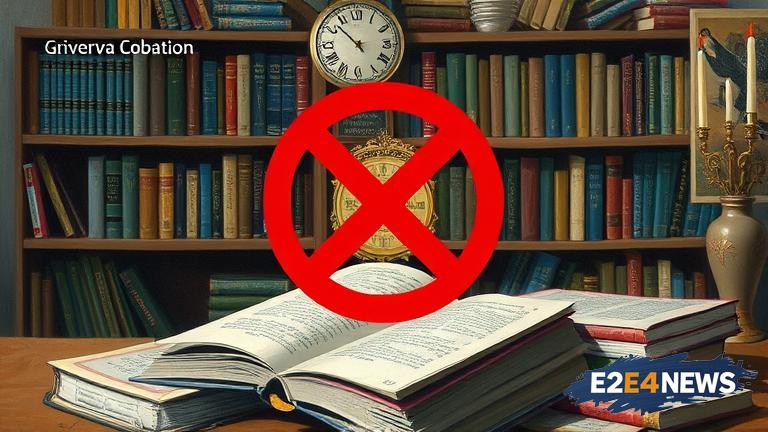In a move that has been widely praised by educators and civil liberties groups, New Hampshire Governor Chris Sununu has vetoed a bill that would have banned certain books in schools across the state. The bill, which was passed by the New Hampshire legislature earlier this year, aimed to prohibit the teaching of certain books that were deemed to be ‘obscene’ or ‘inappropriate’ for students. However, critics of the bill argued that it was a form of censorship and would have limited the ability of teachers to provide students with a well-rounded education. Governor Sununu agreed with these critics, stating that the bill would have had a ‘chilling effect’ on academic freedom and would have undermined the ability of teachers to do their jobs. The veto is a significant victory for educators and students in New Hampshire, who had been fighting against the bill for months. The bill was widely opposed by teachers, administrators, and students, who argued that it would have limited their ability to teach and learn about important topics such as racism, sexism, and social justice. The veto is also a significant blow to conservative groups, who had been pushing for the bill as part of a broader effort to restrict the teaching of certain topics in schools. The bill was part of a national trend of book bans and restrictions, which have been sparked by conservative groups and politicians who argue that certain books are ‘inappropriate’ or ‘obscene’. However, critics of these efforts argue that they are a form of censorship and are designed to limit the ability of students to learn about important topics. The veto is a significant victory for those who believe in the importance of academic freedom and the need for students to have access to a wide range of information and ideas. It is also a testament to the power of grassroots organizing and activism, as educators and students in New Hampshire came together to fight against the bill and protect their right to teach and learn. The veto has been praised by groups such as the American Civil Liberties Union and the National Education Association, who argued that the bill was a form of censorship and would have had a negative impact on students and educators. The bill’s veto is also a significant development in the national debate over book bans and restrictions, and is likely to have implications for similar efforts in other states. As the debate over book bans and restrictions continues, the veto of this bill is a significant victory for those who believe in the importance of academic freedom and the need for students to have access to a wide range of information and ideas. The veto is a reminder that educators and students have the right to teach and learn about important topics, and that efforts to restrict this right will be met with resistance. In conclusion, the veto of the book ban bill is a significant victory for educators, students, and civil liberties groups in New Hampshire, and is a testament to the power of grassroots organizing and activism. It is also a significant development in the national debate over book bans and restrictions, and is likely to have implications for similar efforts in other states.
